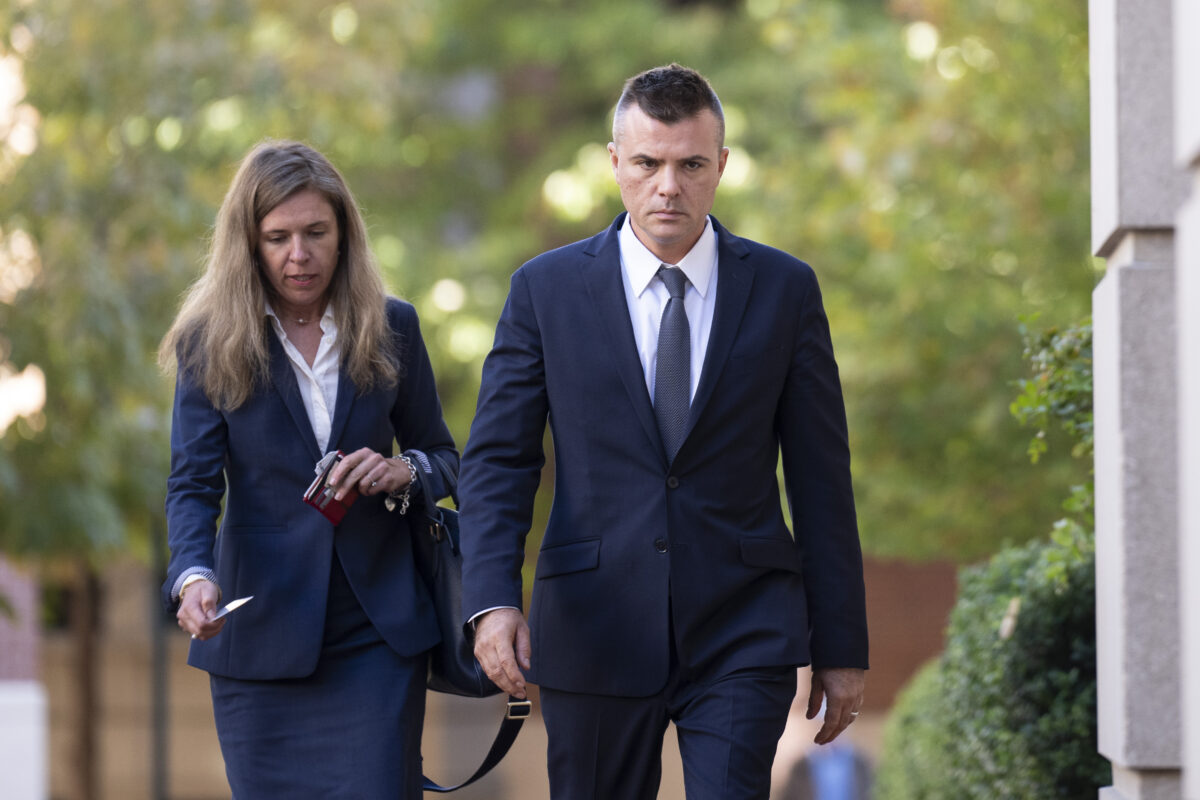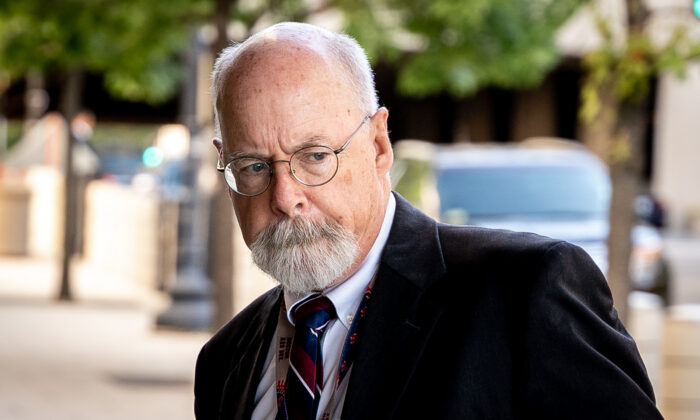ALEXANDRIA, Va.—FBI agents investigating the anti-Donald Trump dossier authored by former British intelligence officer Christopher Steele should have done a better job investigating the truthfulness of its source, special counsel John Durham said in closing arguments for the source’s trial on Oct. 17.
Durham said FBI agents should have performed a “detailed review” of Igor Danchenko, the source, and his statements, including a behavioral assessment, an examination of Danchenko’s finances, and a polygraph test, at least some of which were recommended by FBI experts.
With the evidence presented during the trial, jurors could conclude that the FBI “mishandled the investigation,” according to Durham.
“The government is not here to defend the FBI’s performance in these matters,” he said.
The important thing is how the probe started, Durham noted.
Danchenko has taken credit for the bulk of the information in the dossier, a collection of rumors, lies, and innuendo that painted Trump as potentially under the thumb of Russian President Vladimir Putin, which was hyped by Trump rival Hillary Clinton, who was later revealed as being one of the document’s funders.
Danchenko allegedly lied to FBI agents when he told them that he didn’t speak with Charles Dolan, a Clinton associate, about information in the dossier, even though an email from Dolan to Danchenko made its way, nearly word-for-word, into the finished product. Defense lawyers said Danchenko understood the word “talked” as communicating orally, an argument that helped convince the judge overseeing the case to toss the charge.
Danchenko was also charged with making false statements about thinking he spoke with Sergei Millian, a pro-Trump businessman, over the phone. No phone records support communications between the pair, and Danchenko later wrote emails to Millian and at least one other person as if he had never spoken with Millian.
In one email, Danchenko wrote that “Sergei doesn’t respond,” with no mention of a call or a planned meeting.

The false statements impacted the bureau’s investigation into the dossier, Durham’s team alleges.
The focus of deliberations should be whether the statements “affected the FBI’s actions,” Michael Keilty, an assistant special counsel, told the jury before deliberations began.
“That is all you need to consider,” he said.
Danchenko told dossier author Steele, a Clinton supporter and ex-British spy, that he met Millian in person, but he later informed FBI agents that he actually lied to Steele, according to the agents.
Stuart Sears, one of Danchenko’s lawyers, said Danchenko made clear to Steele that the information he was passing on was “rumor and speculation” and that Danchenko told FBI agents that he didn’t know if anything in the dossier was true.
Sears described his client as being “shocked and upset” by how Steele presented the information in the dossier, which was utilized by the U.S. government to get warrants to spy on former Trump campaign associate Carter Page and in other aspects of Crossfire Hurricane, which Durham was tasked with probing by former Attorney General William Barr.
Sears also noted that Kevin Helson, Danchenko’s handling agent, actually told Danchenko to erase information from his phone after his identity as a source became known to the public.
And Danchenko was clear that he believed, but wasn’t sure, that the person on the phone was Millian. Further, FBI agents didn’t ask detailed follow-up questions, Sears said.


